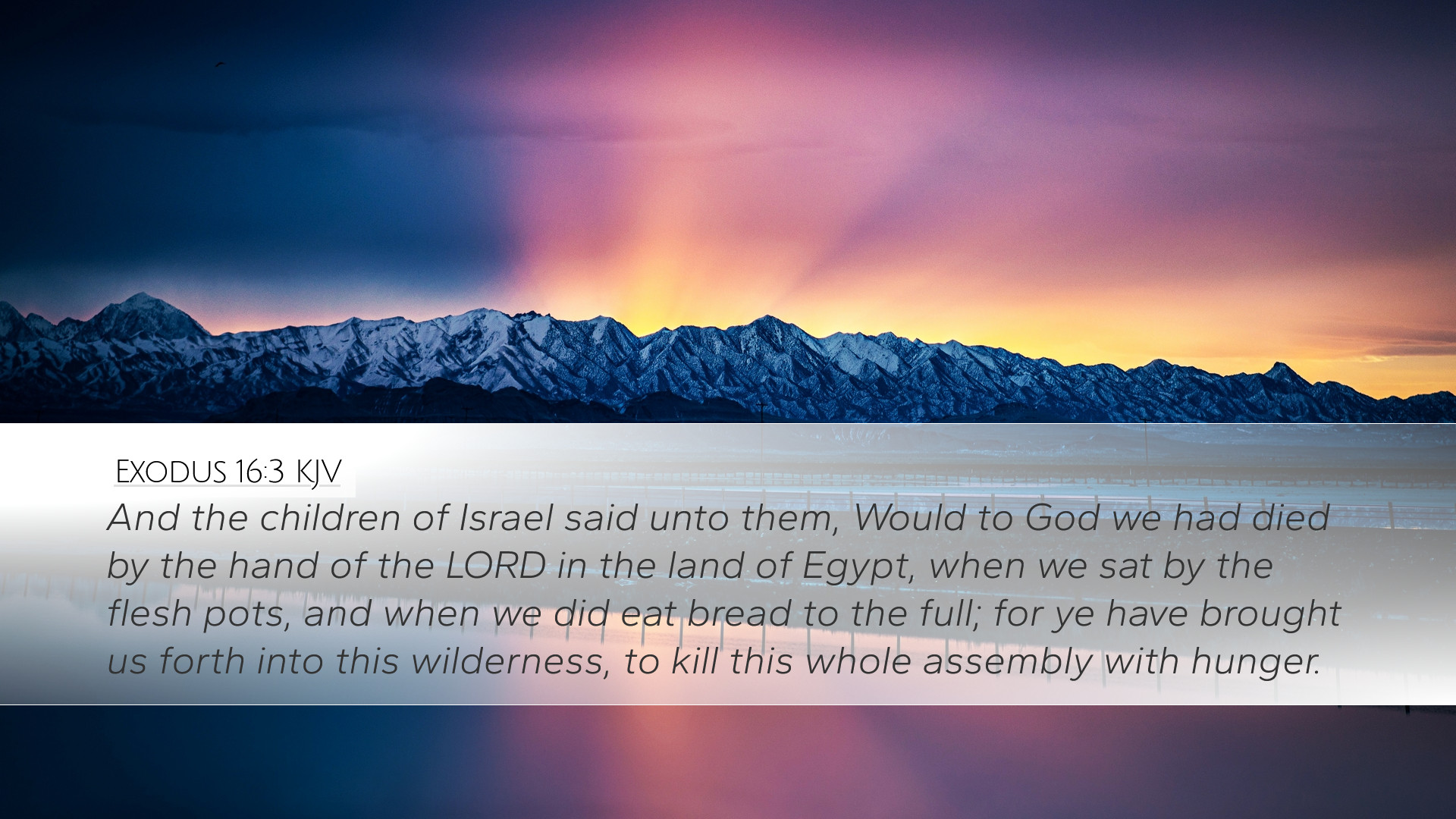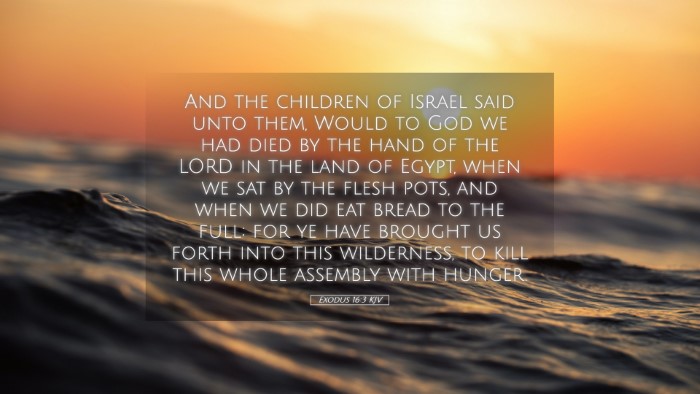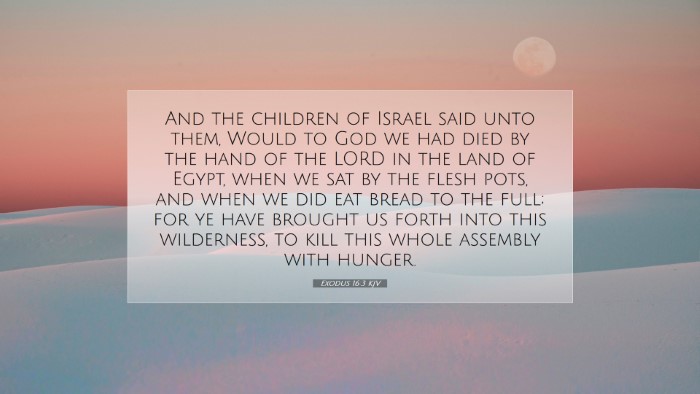Commentary on Exodus 16:3
Text of Exodus 16:3 (ESV): "And the people of Israel said to them, 'Would that we had died by the hand of the LORD in the land of Egypt, when we sat by the meat pots and ate bread to the full, for you have brought us out into this wilderness to kill this whole assembly with hunger.'
Introduction
Exodus 16:3 captures a poignant moment in the journey of the Israelites from slavery in Egypt to freedom under God’s guidance. This verse highlights their complaints against Moses and Aaron, expressing a longing for the past comforts of Egypt despite their bondage. Such sentiments expose deeper themes within the narrative, including human nature, trust in divine provision, and the complexities of spiritual journeying.
Contextual Analysis
In order to understand this verse, it’s important to consider the larger context of Exodus 16. The Israelites had just witnessed God’s miraculous deliverance at the Red Sea and had begun their journey through the wilderness, a place of testing. Their response can be seen as not only a reaction to physical hunger but also to the spiritual challenges they faced in their new identity as God's chosen people.
Matthew Henry notes that this episode illustrates the tendency of people to romanticize their past hardships when faced with current struggles. They remember the meat pots of Egypt but forget the oppression that accompanied their previous enjoyment.
Albert Barnes emphasizes the irony in their longing for Egypt, underscoring that while the Israelites recall the abundance of food, they overlook the miserable conditions of slavery. This selective memory often characterizes the human experience when it comes to trials and tribulations.
Theological Insights
- The Nature of Complaints: The outcry of the Israelites reveals deep-seated issues in their faith. Adam Clarke points out that their complaints are not just about physical needs but reflect a spiritual crisis. They question God's ability or willingness to sustain them in the wilderness.
- Entitlement and Discontent: The verse illustrates a sense of entitlement among the Israelites. Matthew Henry observes that entitlements can distort our perceptions of God’s provisions. Instead of gratitude for deliverance, they express dissatisfaction for their current status.
- Testing and Provision: God uses this moment to test the faith of His people. Albert Barnes emphasizes that God allowed this scenario to unfold as a means to reveal their hearts and teach them reliance on Him for sustenance, depicted later through the provision of manna.
Practical Applications
For pastors and theologians, this passage serves as a crucial reminder regarding the ongoing spiritual journey of faith communities:
- Recognizing Human Nature: Understanding the tendency to complain rather than express gratitude helps leaders develop empathetic responses to congregational members who may struggle during their wilderness seasons.
- Encouraging Spiritual Reflection: Pastoral counseling can aid individuals to reflect on the duality of their experiences—understanding pain and rejoicing in God’s past provisions.
- Promoting Trust in God: Worship services and educational settings should consistently reinforce the faithfulness of God, urging congregants not to idealize their past hardships while encouraging trust in God’s continual provision.
Conclusion
Exodus 16:3 provides rich insight into human responses to divine provision, illustrating a profound moment of discontent among the Israelites. Its relevance continues today, reminding us that even amidst liberation, individuals can grapple with disillusionment and longing for the past. Leaders, scholars, and students of the Bible must reflect on these themes, searching both for understanding and grace towards those who struggle on their spiritual journeys.


